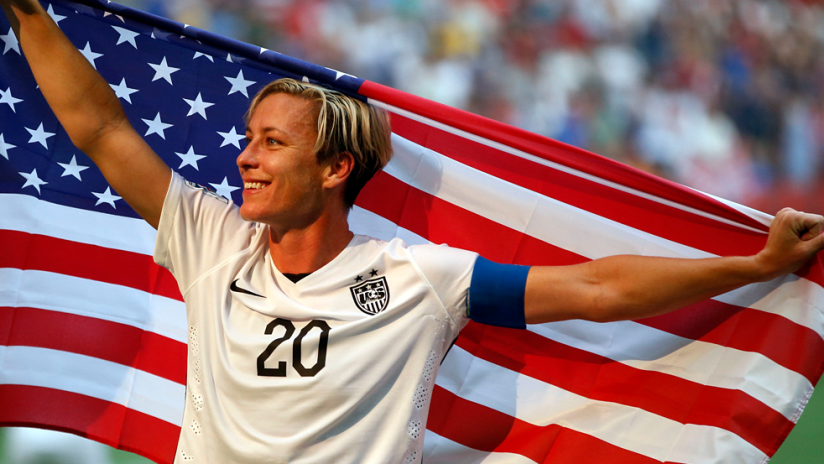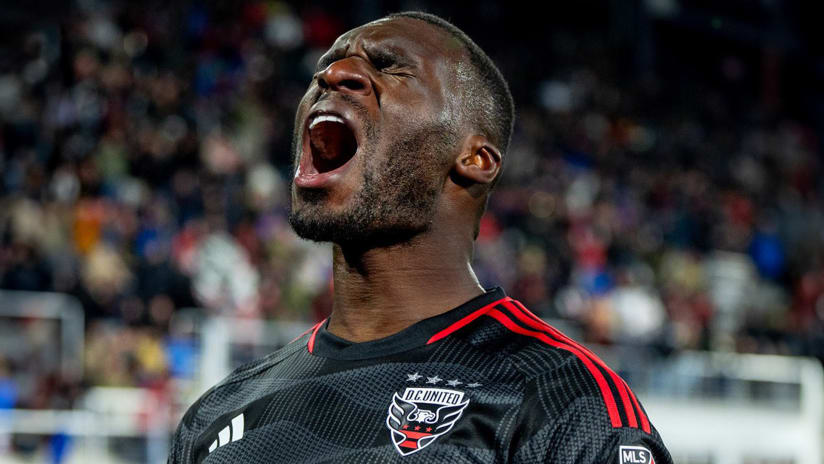Listen to the latest episode:
On Saturday, two key names in American soccer history will be enshrined in the National Soccer Hall of Fame.
Former US national team striker Abby Wambach, the top scorer in international soccer history, and former U.S. Soccer president Sunil Gulati will be inducted in the Hall of Fame in Frisco, Texas. Ahead of the big day, both inductees spoke to Extratime.
In a wide-ranging conversation, Wambach, who won the 2015 World Cup, 2004 and 2012 Olympic gold medals, and was FIFA World Player of the Year in 2012, discussed perhaps the most famous of her 184 goals with the USWNT, a header late in extra time of the quarterfinal against Brazil in the 2011 World Cup.
"I just had this conversation with my wife the other day, and that goal was probably the most life-changing moment that happened as a soccer player for me," Wambach said. "It was against all odds and everything about that game and playing against Brazil and I get chills just thinking about it, I'm such a sports geek."
She explained the legacy of that goal was not just for that particular game, but in kickstarting a new era in USWNT history.
"It lit a fire, not just inside our team, but it lit a fire inside the hearts of people. At the time, even though we weren't able to come home with the world championship that year, Japan beat us in penalties in the final, there was something that happened after that goal. It was like, 'OK, this is happening, and we're going to take this team into a new stratosphere of popularity.' And I think that goal was really a stepping-off point in many ways."
In the moment, however, Wambach didn't think she had scored.
"Truthfully I thought I hit the outside netting of the goal in the instant moment. I think I had a blackout experience, so much euphoria, could that have possibly gone in? I don't really remember much about the celebration except running over to the corner flag and sliding on my knees and seeing that there's concrete just beyond the sidelines, and feeling like, 'Uh oh, I'm going to get injured!' And I pop up and I actually slip trying to like save my knees, and that's when we kind of got dog-piled as a team over in the corner flag."
In retirement, Wambach says she is acting as an advocate for women's soccer and the NWSL. A veteran of all three women's professional leagues in the United States, she believes forging ties to MLS and MLS clubs can help the NWSL in the future.
"For me, it's my job to embed myself and to have this conversation with some MLS teams of 'Here's this really huge avenue for potential growth inside your corporation, and it has nothing to do with the men's team. You can actually create an entire new business that sits right next to this men's team and you can see this thing grow.' It might take 10 years, but I think you're finding some of these MLS teams are seeing the profitability and the potential for growth in women's soccer, and you're finding a lot of MLS teams going 'Wait, we need to get on this train before it starts costing way too much.'"
Gulati also spoke on a number of topics. The main power broker for American soccer for decades, among the topics discussed was the hopes for what will happen with the 2026 World Cup, which the United States will host alongside Canada and Mexico.
Gulati gave a 30,000-foot view of the ways in which the United States has helped the global game and how the sport can help the US, too.
"There's different parts of this whole process," Gulati explained. "There was the, let's call it the post-[2022] decision process, which was difficult for a long time. Then there was 'What are the rules going to be?' and U.S. Soccer played an important role in having those roles and in outlining what we expected the rules to be and how we expected to be approved from previous. FIFA worldwide adjusted on that and the bid process was much better. Then there's the process of bidding, then there's the process of getting the bid and now going forward, which is really city selection over the next year and a half, two years, whatever that may be.
"And then there's the buildup of everything between now and [2026], everything we can do to take advantage that we have this landmark event coming. Then you've got the event, 31, 32 days, whatever it will be with 48 teams. And what I've often said is that in a way is the easiest part, because we know in the United States we can put on big events, we've got the infrastructure built, so we don't need to build stadiums and build highways and hotels and so on.
"The most important part will be what does it look like the day after? I don't mean literally the day after. But what is the landscape of the sport look like when we're done with the World Cup and can say, 'Ok, this is what the World Cup was able to do for us, take us to a higher level, increase the trajectory, improve the trajectory of the game, have more people engaged with it.' So for the United States, it's not about nation-building, it's not about changing the size of the economy, sporting events are generally pretty small...It's about how do we continue to build that soccer nation."
Gulati also discusses the state of the USMNT and how setbacks are part of the process.
You can check out the interviews with Wambach and Gulati over at Extratime.













